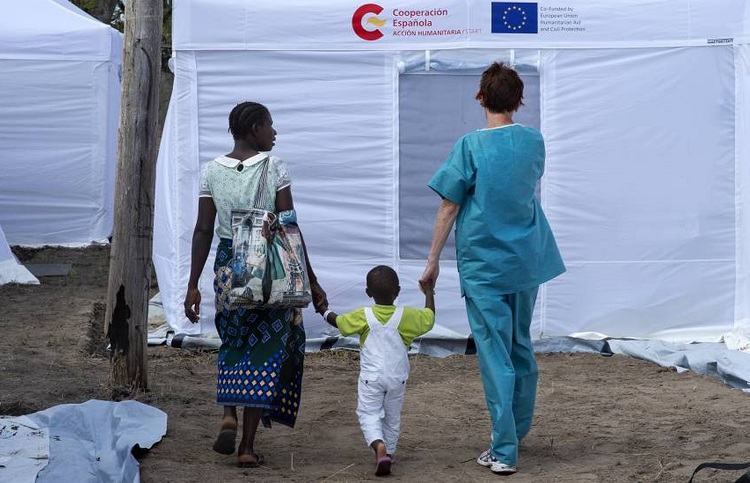The Diplomat
A total of 2,708 Spaniards are professionally engaged in international development cooperation and humanitarian action abroad, according to a study published by the Spanish Agency for International Development Cooperation (AECID) on the occasion of Aid Workers’ Day, an annual commemoration celebrated today and established in 2006 by the United Nations.
The report, prepared by the Spanish Cooperation, gathers the data of the people registered in the Spanish Embassies and Consulates in those countries eligible to receive official development assistance (ODA) according to the criteria defined by the Development Assistance Committee (DAC) of the Organization for Economic Cooperation and Development (OECD). In any case, these data are current as of August 1 and have undergone changes since then due to the latest events in Afghanistan, where there are currently no Spaniards.
The document indicates that women working in development cooperation abroad make up 55% of the total, and 81% of Spanish professionals are over 35 years of age. By origin, Spain currently has development workers abroad from all the Autonomous Communities, as well as from the autonomous cities of Ceuta and Melilla. The largest group is from the Community of Madrid (19% of the total), followed by Castile and Leon (13%), Catalonia (13%) and Andalusia (11%).
Spanish aid workers work in a total of 96 countries around the world. Some 41% are displaced in Sub-Saharan Africa, 25% in South America, 15% in Central America and the Caribbean, 6% in Asia and the Pacific, 6% in the Maghreb, another 6% in the Arab world and 1% in Europe. Bolivia leads the list of countries with the largest number of development workers in its territory, with a total of 334 people, followed by Colombia, with 153, and the Democratic Republic of Congo, which has 136 Spanish development workers.
Thirty-five percent of Spaniards involved in development cooperation in countries receiving Official Development Assistance (ODA) work under the coordination of Non-Governmental Development Organizations (NGDOs). The second group (26%) is made up of religious personnel, while 19% work for international organizations dedicated to cooperation. Fifteen percent of the Spanish personnel posted in the field are working for the AECID. The remaining 5% work for different organizations at the same time, or it has not been possible to define their position.
The development workers are mainly professionals working in cooperation sectors such as inclusive economic development, democratic governance, humanitarian action, basic services such as health, education and access to water and sanitation, rural development and food security, environment, the fight against climate change or support to the cultural sector from a development approach.
The document reminds us that the rapporteurs are working in very difficult situations. In 2020, there were 276 attacks on humanitarian personnel, causing 475 casualties, 108 of them fatal. This same year, in Ethiopia, Maria Hernandez, a Médecins Sans Frontières worker, was killed along with her two local colleagues, Yohannes Halefom and Tedros Gebremariam, while on their way to assist conflict-affected populations in the Tigray region.







